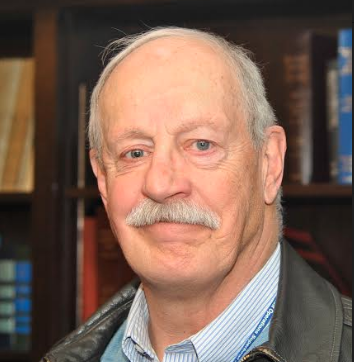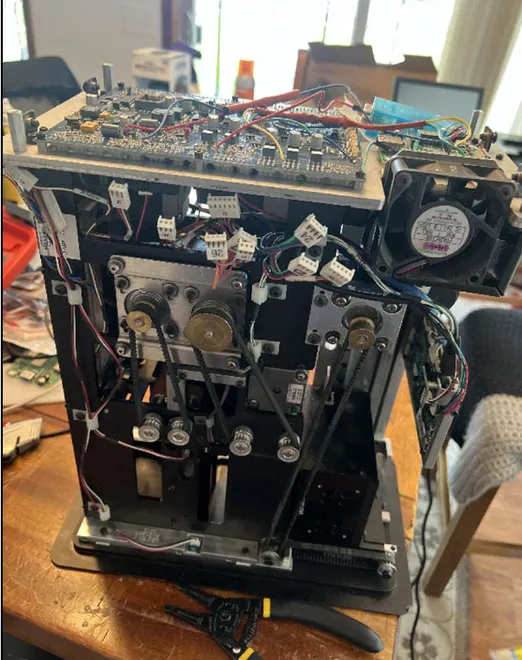Greg Stejskal served as an FBI agent for 31 years and retired as resident agent in charge of the Ann Arbor office.
By Greg Stejskal
Like the mountain in one of Aesop’s fables, Special Counsel John Durham labored mightily and brought forth a mouse.
In May, after a four-year investigation, Durham delivered his final report regarding his investigation into the Department of Justice/FBI investigation of Russian interference in the 2016 presidential election. The 306-page report contained no evidence of politically motivated misconduct in the FBI’s decision to initiate the Russian investigation nor in its pursuit of the inquiry.
The report did recount flaws in the investigation that were previously reported by the DOJ Inspector General Michael Horowitz. But IG Horowitz had concluded that there was no evidence that the FBI’s actions were politically motivated. He also concluded that the FBI was justified in initiating a “full investigation” based on a tip provided by an Australian diplomat.
In May 2016, the diplomat while in a London pub was told by George Papadopoulas, a foreign policy advisor to Donald Trump’s 2016 campaign, that one of the reasons Trump would win was the Russians had information that would be damaging to Hillary Clinton, which they would release anonymously. After the pub conversation, the Russians did release information through Wikileaks that had been hacked from the Democratic National Committee emails which was damaging to the Clinton campaign.
This lead and the initiation of the FBI investigation, dubbed “Crossfire Hurricane,” happened several months before the FBI became aware of the so-called Steele Dossier. When the FBI did learn of the Dossier, its credibility was questioned by the FBI – specifically by Deputy Assistant Director Peter Strzok. Later Strzok’s anti-Trump texts between he and Lisa Page, an FBI employee, became public resulting in allegations of political bias in the investigation. Neither IG Horowitz nor Durham found any politically biased misconduct in the investigation and specifically no such conduct by Strzok. (When Robert Mueller took over the investigation as special counsel, he removed Strzok from the investigation.)
Trump Fires Comey
When Trump became president, he wanted the investigation of Russia’s efforts to influence the 2016 election closed. When FBI Director James Comey didn’t end the investigation, Trump fired him. Trump’s then Attorney General Jeff Sessions had previously recused himself from overseeing the Russian investigation as he was a potential witness. The firing of Comey resulted in Sessions appointing a special counsel, Robert Mueller, to lead the Russian investigation. (Session’s recusal and the appointing of a special counsel incurred the wrath of Trump, and in 2018 Sessions resigned at the behest of Trump.)
Mueller’s team of experienced federal prosecutors and FBI agents continued to pursue the Russian investigation, and it lasted about two years.
Despite being referred to by Trump as a “witch hunt” and a “hoax,” the investigation found substantial evidence that the Russians did mount a significant campaign of disinformation damaging to the Clinton campaign using a “troll farm” run by Yevgeny Prigozhin (The possibly deceased leader of the Wagner group in Ukraine and who after the indictment, bragged that the Russians did disseminate disinformation in an effort to influence the election in favor of Trump.) Thirteen Russians including Prigozhin were indicted. In addition, twelve Russian military intelligence officers were indicted in connection with the hacking of the DNC and the dissemination of DNC emails via Wikileaks – seemingly corroborating the London pub lead that was the initial basis for the FBI Crossfire Hurricane investigation.
The investigation revealed numerous instances of communications between members of the 2016 Trump campaign and the Russians, but nothing rising to the level of a criminal conspiracy. Paul Manafort, one-time Trump campaign chair, was found to have been passing internal campaign polling information to a Russian believed to be connected to Russian intelligence. Manafort was prosecuted and convicted on other charges. Several other members of the Trump campaign were convicted or pleaded to charges of lying to the FBI. Roger Stone, a longtime political advisor to Trump, was convicted of lying to the FBI and threatening a witness. (Both Manafort and Stone were pardoned by Trump prior to his leaving office.) No one known to be a witch or warlock was prosecuted.
In April 2019, about a month after the Mueller/Russian investigation was concluded, Trump’s then Attorney General William Barr announced that he had launched a review of the origins of the FBI’s investigation of the Russian interference in the 2016 presidential election. Barr designated Connecticut U.S. Attorney John Durham to lead the investigation. Later Barr gave Durham special counsel status.
Which brings us back to the “Report on Matters Related to Intelligence Activities and Investigations Arising Out of the 2016 Presidential Campaign” aka, the Durham report. The report is very critical of the FBI using terms like “confirmation bias” and “lack of analytical rigor.” The primary criticism focuses on the decision to open the Russia investigation.
Although Durham pursued his inquiry with the initial premise that there was misconduct based on political bias in opening and pursuing the investigation by the Bureau – confirmation bias – he found none. In what seems to be a contradiction regarding the London pub lead, Durham did say, “There is no question the FBI had an affirmative obligation to closely examine that lead.”
Little New Information
On June 21, Durham testified in front of the House Judiciary Committee. He offered very little information not contained in his report. In reference to the Mueller investigation/report, Durham called Mueller “a patriot” and did not contradict any of his findings.
Trump had hoped that Durham would announce prosecutions of DOJ/FBI officials prior to the 2020 election. That didn’t happen and now the results of the Durham report are disappointing to Trump and his sycophants. During the Judiciary Committee hearing, Rep. Matt Gaetz espoused the theory that the supposed collusion between the Trump campaign and the Russians emerged because of an operation by western intelligence agencies to undermine the Trump presidency. A theory that Durham at the behest of AG Barr set out to prove but failed to find any evidence to support it. Gaetz conclusionary statement was, “When you are part of the coverup, Mr. Durham, then it makes our job harder.” Gaetz doesn’t seem to understand, alleging a theory doesn’t make it true. As special counsel, Durham had to prove the conspiracy theory.
The Durham report wasn’t a coverup. Durham followed the facts. His report did recount some valid criticisms of the FBI’s procedures albeit ones that were previously reported by IG Horowitz. Most significantly the FBI’s procedures in drafting affidavits submitted to the Foreign Intelligence Surveillance Court, FISA court, were inadequate to ensure accuracy. Affidavits were found to contain errors and misstatements. These flaws were not found to be intentional and were found in affidavits used in several other unrelated cases.
The Bureau made this statement in response to the Durham report and its findings regarding FISA court affidavits: “The conduct in 2016 and 2017 that SC Durham examined was the reason that current FBI leadership already implemented dozens of corrective actions, which have now been in place for some time.”
Although the report is contradictory regarding the origins of the FBI Russia investigation, its value maybe in what it didn’t find. After a four-year quest, no “deep state” conspiracy was found. Clearly the FBI investigation was not a hoax nor a witch hunt. It exposed a significant threat to our electoral process that we ignore at our peril. (I don’t think there’s any evidence a deep state exists just dedicated public servants who took an oath to uphold the Constitution not professing fealty to anyone – no one is above the law.)









